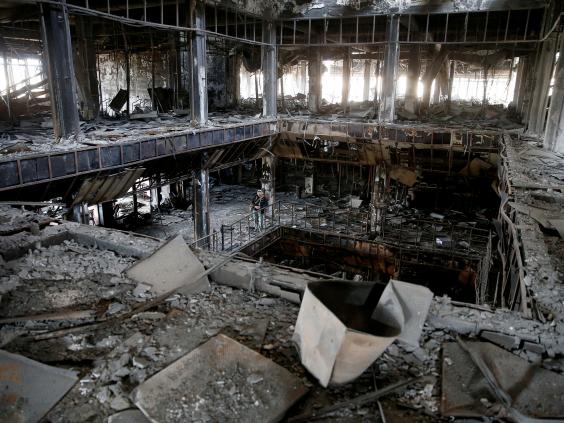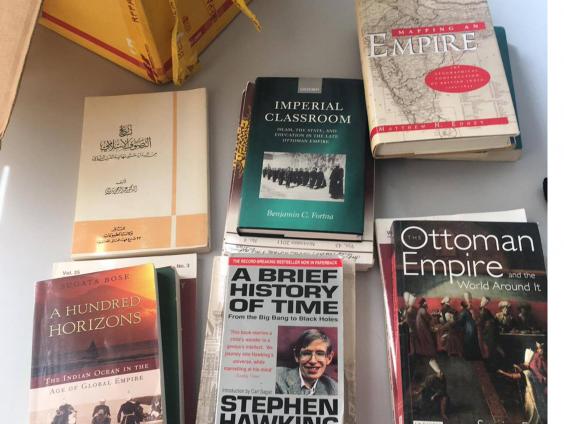Libraries are one of the hallmarks of civilisation, the availability of knowledge and ideas has been inherent to our progress as a species for thousands of years. The destruction of such knowledge is also an often repeated and always unforgivable crime of many a tyrant whether it be the destruction of the treasured Great Library of Alexandria by the forces of Hulgeu of the Mongol Empire (though it had been destroyed or severely damaged previous) or the infamous book-burning pyres of Nazi Germany.
Any time knowledge or information is suppressed is a sign that a society or government is failing whether it is the suppression of Wikipedia in Turkey this past weekend or even behind closed-doors press conference to favoured journalists at the Whitehouse.
Libraries (and museums) though are surely the pinnacle of our cultures around the world, the idea of freely available knowledge is one that cannot be beat. A few years ago, the famed madrassa libraries of Timbuktu had a close call when the city was temporarily occupied by Islamist groups though thankfully the most priceless manuscripts were hidden away.
The city of Mosul was not so lucky, occupied for a much longer time by the latest in a long line of barbarians who only have the ability to destroy rather than offering anything of value themselves.
Once a treasure trove of Unesco-registered rare books, the central library of the University of Mosul is now a blackened husk, full of ash. The library was once home to some of the “most precious and valuable manuscripts and rare prints in the region”, according to the man behind the Mosul Eye website.
Less than a year after it captured the city in the summer of 2014, Isis all-but destroyed the building and burned its books. It is believed the militants destroyed or looted countless documents during the occupation which represented illegitimate knowledge according to Isis. 100,000 rare manuscripts and documents spanning centuries of human learning were destroyed, including some which were registered on a Unesco rarities list.
University professors and officials were forced to flee – but one man, Mosul’s librarian-in-exile, is still fighting for its survival.

A historian who taught at the university before it fell to Isis, he is the author of the “Mosul Eye” blog documenting life in the occupied city and, as a result, cannot be named for security reasons.
He is behind a campaign which hopes to receive 200,000 donated books from around the world in all languages.
He described the period shortly after Isis entered Mosul, but before he was forced to flee, when a meeting was called for faculty at the university.
“One of the instructors said to an Isis member appointed to the university: ‘What do we do with Shakespeare’s books? We need them to teach students English.’ The Isis member replied: ‘And what would Shakespeare offer to Muslims?’.
“From that moment I realised what Isis was up to,”
For the historian, the destruction of his country’s knowledge and culture was “devastating”, and he warned the loss to Iraq’s history was “dire”.
“Manuscripts that document the most important and critical phase of the history of modern Mosul may not be ever recovered. There will always be a black hole in the history of Mosul and Iraq as a result,” he said.
“The university’s central library was my second home. It used to house a wealth of rare publications and unique manuscripts that were available nowhere else.”
Over the two and a half years that followed Isis’ capture of the city, smaller libraries in Mosul were repeatedly targeted and looted.
Controlling knowledge to reaffirm its grip on power, Isis aimed to “cleanse the libraries of all blasphemous literature and knowledge”, said the historian.
Students, professors and residents of Mosul made several secret attempts to save the city’s manuscripts and hide them away from Isis’ reach but, the historian said, it was hard to estimate how much survived.
Now, the librarian is turning his attention to the future, with a worldwide call for donations of books and publications of all kinds, about any subject and in as many languages as possible.
The books are being collected in the relatively secure Iraqi city of Irbil, where they are sorted, labelled and prepared for a more peaceful time when the libraries can be rebuilt.
From music and literature to history and science, the Mosul Eye’s founder said teaching people about experiences of liberty and democracy around the world will help to fight extremism.
Despite the immediate need for food and medicine, he said he believed that by collecting books now, he could start to give hope to future generations.

All ready several hundred books have been donated from around the world though sadly, the response from some neighbouring Arab countries has been entirely negligible.
A small NGO called Solidarity and Cooperation in the Mediterranean (Entraide et Coopération en Méditerranée) has pledged to ship 20 tonnes worth of books in a container, which would travel from Marseille to the Iraqi port of Basra, in the Persian Gulf.
Mohamed Hermi, founder of the organisation, which was previously called Read and Cure (Lire and Guérir), said: “The only thing that can cure the evils of society are books and learning. Books are the weapon to fight against all cancers of society.
“In order to fight against intolerance, racism, anti-Semitism, extremism and radicalism, society has to read, read and read.
“We work with lots of organisations and schools in the area and we have loads of books, that’s no problem. Working out how to transport the books through Iraq is more difficult,” he said.
The organisation will send novels, school and children’s books, history and geography books in French and in English.
When he returns, the historian dreams not only of building up Mosul’s central library, but also developing an opera house and school of music and the performing arts. In his way, he hopes, he can fight for the city’s cultural survival, even as Iraqi soldiers battle to secure its future.
If you have any old books, or your school or library does, why not consider sending them to help replenish Mosul Library?
Title: Mosul Eye campaign to revive the libraries of Mosul
Address: Iraq, Erbil, Sadunawa behind Erbil International Hotel (Sheraton) building.
Email: mosul.eye@gmail.com

Its such a pity. One in a long line of destroyed heritage from this vicious regime.
LikeLiked by 1 person
It is/ There aren’t many groups that offer absolutely nothing to the world but they are definitely one of them.
LikeLiked by 1 person
I was saddened to learn what happened to the Mosul library. A loss of books, materials, and for learning. A loss of freedom to think critically. Public libraries are equalizing tools, which we need badly in our world of rampant growing inequality.
In the U.S., funding reductions have recently slammed our science departments like the EPA, CDC, etc. Museum and library funding has been hit, too, along with funding for the arts. Sadly, a similar underlying principle between the two ‘regimes’ is revealed. Weakening democracy, which cannot exist without a breadth of knowledge and accurate information, makes a society easier to control.
LikeLiked by 1 person
I think you are exactly right. The events in Mosul may be the most extreme example, but more sophisticated and nuanced efforts occur in the USA and Europe too. It’s well known how the regimes in Russia, China and elsewhere control information and the ability for individuals to have freedom of thought that is against the best interests of their government and it is sad to see anything even like that in America.
LikeLiked by 1 person